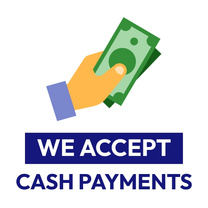- What are acceptable forms of ID? Any current U.S. government-issued identification is considered an acceptable form of ID. This includes driver’s
licenses, military IDs, passports, and state-issued identification cards.
2. Should I sign the document prior to our meeting? NO. You may fill out and questions within your document but do not sign any document
that requires notarization. All signers must still be present at the time of notarization to confirm the validity of their signature. Pre-signed
documents cannot be notarized.
3. Can a Notary Public certify copies of documents? Although Florida may authorize a notary to “certify copies,” a notary is not able to do so
with documents that must legally be copy-certified by the official custodian of the document. Even though some notaries public are
authorized to “certify copies,” this does not mean that they are allowed to produce certified copies of official records.
4. Can a notary public refuse to notarize a document? Yes, Florida law requires that a notary should refuse a notarization under the
following circumstances:
- The document is incomplete or blank (not filled out)
- The signer is not present
- The notary is also the signer
- The signer is related to the notary (parent, child, spouse or sibling)
- The notary is a party on the document or could benefit from it financially
- The document is not in English, the signer does not speak English and there is no translator available
- The signer does not have proper identification and the notary does not personally know the signer
- The signer is mentally incapacitated
- The signer refuses to sign the document
- The signer does not know what type of notarial act is required and there is no notarial certificate prepared on the document.
- The signer appears to be intoxicated, sedated or disoriented.
- The notary suspects that the document is illegal, forged or deceptive.






